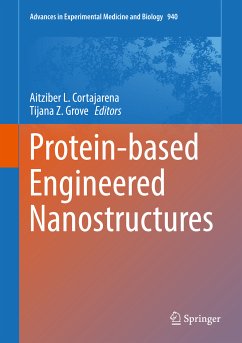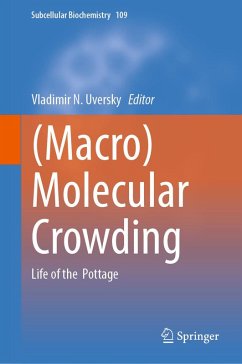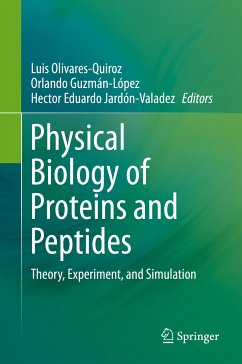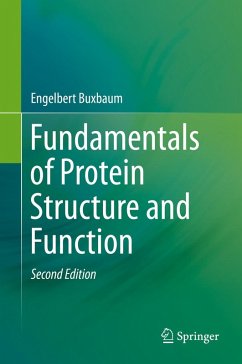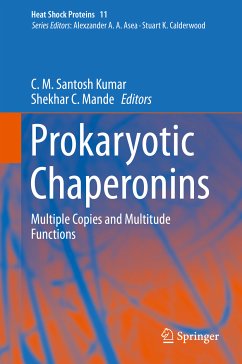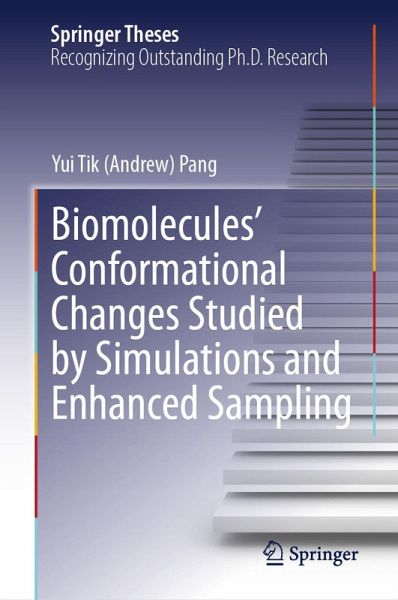
Biomolecules' Conformational Changes Studied by Simulations and Enhanced Sampling (eBook, PDF)
Versandkostenfrei!
Sofort per Download lieferbar
104,95 €
inkl. MwSt.
Weitere Ausgaben:

PAYBACK Punkte
52 °P sammeln!
This thesis illuminates the critical roles biomolecules, from small molecules to proteins, play in cellular functionality, particularly highlighting their conformational changes in response to environmental cues or binding events-a cornerstone concept in drug design as well as the manifestations of disease. It explores the conformational flexibility of small molecules and proteins, essential for predicting drug interactions and understanding biological processes. Through advanced molecular dynamics simulations and enhanced sampling techniques, this research offers unprecedented insights into t...
This thesis illuminates the critical roles biomolecules, from small molecules to proteins, play in cellular functionality, particularly highlighting their conformational changes in response to environmental cues or binding events-a cornerstone concept in drug design as well as the manifestations of disease. It explores the conformational flexibility of small molecules and proteins, essential for predicting drug interactions and understanding biological processes. Through advanced molecular dynamics simulations and enhanced sampling techniques, this research offers unprecedented insights into the structural dynamics of three distinct biomolecular systems: the capsid assembly modulator AT130, the passenger domain of pertactin, and the SARS-CoV-2 spike protein. Each system represents a unique facet of biological complexity, underscoring the thesis's contribution to our understanding of biomolecular behavior across various scales. Furthermore, the thesis advances the field by updating the Force Field Toolkit for improved simulation accuracy. This work not only showcases the adaptability and importance of simulation techniques in modern biological research but also paves the way for novel therapeutic strategies by deepening our understanding of biomolecular dynamics.
Dieser Download kann aus rechtlichen Gründen nur mit Rechnungsadresse in A, B, BG, CY, CZ, D, DK, EW, E, FIN, F, GR, HR, H, IRL, I, LT, L, LR, M, NL, PL, P, R, S, SLO, SK ausgeliefert werden.



